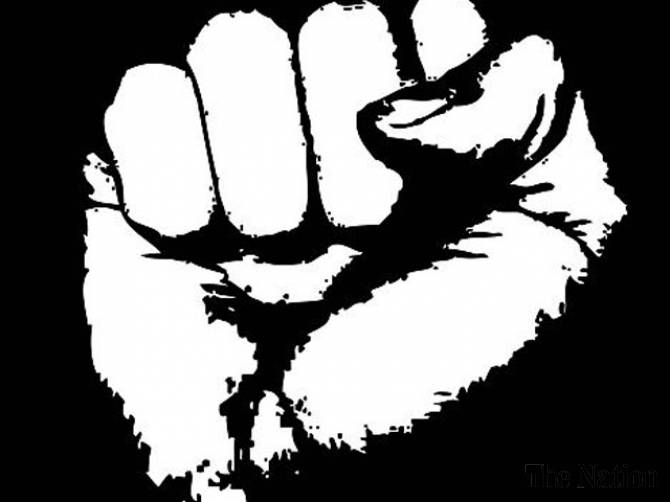Mental Health and Being Strong: When Adjectives Become Labels

We know that adjectives are descriptive. We welcome adjectives and what they have the power to do: paint a mental picture, create an emotional response, fill in the blanks when an explanation is needed and so much more. What about when a normally positive adjective is used to describe us? When can an adjective intended to be a positive become a negative and a label instead? Allow me to explain:
Idea of Being Strong Can Hurt Mental Health Recovery
The word STRONG is often used to describe me. I detest being called STRONG.
Courageous, yes. Strong, I detest. I am a survivor - a survivor of child sexual abuse, rape, physical abuse, abandonment, cancer and depression. Am I strong? DARN STRAIGHT!
Yet being perceived as strong has a flip side: One's needs are oftentimes not attended to as a result - by ourselves or by others. Thus, the adjective becomes a label.
The level of drawing attention to my needs increases, anxiety increases and, at times, becomes a crisis. Just because I may have a high pain tolerance does not mean that, on any given day, I am not swinging by a thread as I practice my self-care routine. It does not mean that I am not dealing with anxiety relating to triggering events.
Strong but Not Invincible
I have begun to re-frame the use of the adjective strong, whether I am applying the term to myself or others are applying it to me. The phrase I use is this: "Yes, I AM strong, but I am not invincible. Sometimes I'm vulnerable. That vulnerability means that I have needs and it is up to me to ensure that those needs are met so that I can remain in my healthy place. This includes communicating and being listened to when I am struggling". This statement gives cause for pause when implemented. Recovery requires educating others about our truth and being honest with ourselves. Minimizing our own pain can lead to further anxiety.
What adjectives are used to describe you that cause your heart or mind to rebel?
You can also connect with Paulissa Kipp on Google+, Facebook, Twitter, Linkedin, Pinterest and her website, Paulissakippisms.
APA Reference
Kipp, P.
(2013, October 11). Mental Health and Being Strong: When Adjectives Become Labels, HealthyPlace. Retrieved
on 2025, December 10 from https://www.healthyplace.com/blogs/recoveringfrommentalillness/2013/10/strong-but-not-invincible-recovery-and-the-perceptions-of-others
Author: Paulissa Kipp
I guess. But what if you're extremely depressed and you don't really feel like talking, in a manic/mixed episode, etc.? Once your symptoms cross a certain threshold, it is impossible. For me, once I am at that point, I am not even aware that there is anything to communicate. And when I do at a later date, the people around me are in denial. The most useful thing I am learning is to be aware of early warnings (not sleeping well, etc.), but that isn't always a guarantee. I guess you do the best you can.
Yes, we all do the best we can. We don't always know how to communicate what we need in the moment. I liken it to what algebra is like for me: I don't understand algebra and trying to explain what I don't understand is frustrating. It is hard to know what I don't know at times. I hope the previous analogy makes sense.
A comment I hate is when someone asks me how I've been feeling and I tell them the truth-whether it's depressed, anxious, physical pain-and they respond, "Well....ya look good!) it's as if when I dress nicely and wear makeup, I must be doing well. If I go without makeup and I'm wearing sweats, I must be doing poorly.
Wow, this observation makes so much sense. Image is a tricky thing. People perceive so many things even when we say nothing or by downplaying our truths. Thank you for sharing.
I agree. You don't have to be vulnerable in front of anyone. But sometimes you don't have control over that (e.g. when you're symptomatic), or your right to be that way in private (usually because of some jerk). I think everyone is resilient. Sometimes more so than others.
Good point about when we are symptomatic. When I am in the midst of a panic attack, all bets are off. I am learning, though, how to use that vulnerability of an attack to communicate my needs to others and to evaluate them to provide myself better self-care.
I really think vulnerability is a state that some people do not have the luxury to feel. There are too many jerks out there.
I agree up to a point. Yet I know that many people are more scared to look inside and be vulnerable (which doesn't really require being vulnerable with others. It requires being vulnerable enough to tell ourselves the truth of who we are: resilient, not irreparably damaged and worthy). Recovery begins with vulnerability; that is where our strength is formed.
I really think vulnerability is a state that some people do not have the luxury to feel.
I believe that The Circumstances of your life don't have to dictate the outcome of your life.
Exactly Teresa, we are not our past. Our experiences inform our responses to stimuli but we can choose differently at any time. That is the beauty of this life.